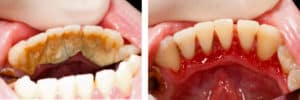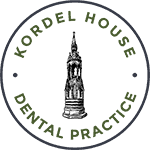Gum Disease Treatment Lincoln

Gum Disease Treatment Lincoln
What is gum disease?
It’s an inflammatory response due to bacteria and plaque left around the teeth and gums. About 8.5 % of od adults have gum disease in Lincoln and needs treatment.
It is commonly caused by inefficient oral hygiene. There are 2 main types of gum disease; gingivitis and periodontal disease.
Gingivitis
This is the first stage of gum disease. Gingivitis simply means inflammation of the gums. It is caused by bacteria and plaque which is left around the gums. Over time it can cause bleeding. The bleeding can happen by touching the affected area or it can sometimes bleed spontaneously. Gingivitis is reversible, so just by improving your oral hygiene routine and effectively removing the bacteria and plaque the inflammation should reduce over time.
You may have calculus/tartar build-up which can hinder good plaque control. For this reason, it is recommended to see a dental professional for some scaling to remove the build-up and go through any oral hygiene advice necessary.
Periodontal Disease
This is a more advanced form of gum disease. This is when the bacteria from plaque starts to cause destruction to the gum and bone that hold the teeth in place. It creates pockets around the tooth where bacteria can linger deep under the gum line. If left untreated it can cause teeth to become loose and in very severe cases people can lose their teeth due to the disease.
Your dental professional will be able to diagnose this disease and give you a tailored treatment plan and oral hygiene regime to work on at home. In this case, you will likely require regular hygienist visits usually every 3-4 months to maintain the disease.
Unfortunately, periodontal disease cannot be cured. It can only become stable by thorough oral hygiene routine at home if your cleaning lapses then unfortunately the disease can become unstable again.
There are other factors which can further increase your risk to periodontal diseases such as smoking, stress, family history, uncontrolled autoimmune conditions such as diabetes and an underactive thyroid. There are also links between periodontal disease and heart disease and more recently dementia. By getting in control with your overall health you can greatly reduce your risk to gum disease.
Gum Disease Prevention
Like with all disease prevention is crucial. So how can you prevent potential gum disease?
- Brush twice a day with a fluoride toothpaste. One last thing at night and one other time during the day
- Concentrate on the gum line when toothbrushing. This is where the plaque and bacteria mainly collect. Your toothbrush wants to be half on the gum half on the tooth at a 45-degree angle. This is so the bristles of the brush can get slightly underneath the gum line.
- If using a manual toothbrush be careful not to apply too much pressure on the gum line as this can cause gum recession. Rather than hold the toothbrush in a fist motion, hold with a few fingers instead to apply less pressure
- Electric toothbrushes are more effective at removing plaque evidence shows. This will help to further reduce build-up. It is recommended to get an electric brush which has a 2-minute timer and a pressure sensor to prevent gum recession.
- Disclosing tablets are a great tool to use in order to visually show where you have missed brushing. They turn any plaque missed on the teeth purple so you can go around again with your brush knowing you’ve removed everything. (Use on the night time clean before you go to bed as they can temporarily turn your tongue purple!)
- Visit your dentist/hygienist regularly so that they can assess your gum health, clean the teeth if necessary and give you any ice needed to improve your gum health.
- Call us on 01507211833 or email us on smile@kordelhousedentalpractice.co.uk, if you are worried about bleeding gums and gum disease.


